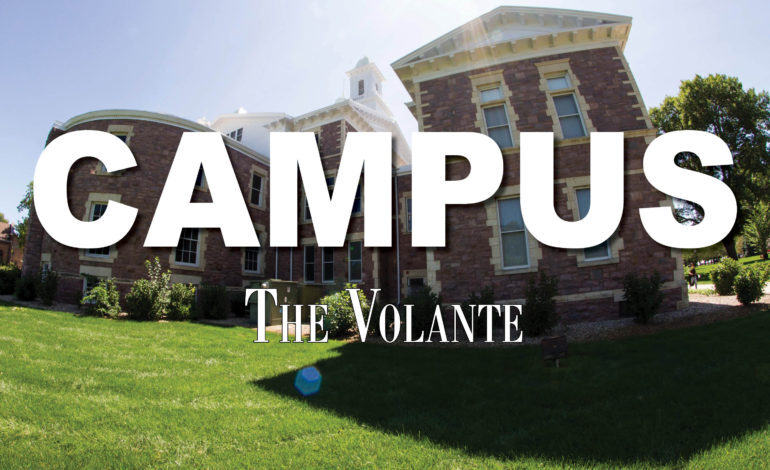
SGA Senate Resolutions 6 puts SGA support behind CDC
At the Oct. 5 Student Government Association (SGA) meeting, Senate Resolution 6, a resolution to support the Center for Diversity & Community (CDC) was introduced to the SGA body.
Senate Resolution 6 and the other resolution introduced last week, Senate Resolution 7, were inspired in part by the listening session hosted by USD’s Opportunity for All task force.
“SGA was really just waiting for the perfect time for us to speak on this,” Sen. Carter Linke, one of the lead sponsors of Senate Resolution 6, said. “After the listening session, we were actually super pleased to see as many students that could come, come out.”
In total, roughly 350 students, faculty, staff and community members attended the listening session Sept. 28. Many members of SGA attended the listening session to try and see what the students and faculty of USD had to say about the situation surrounding the CDC and the potential Opportunity Center that will be added to campus Jan. 1, 2022.
“I would say sitting in that room, gathering information about students’ perspectives in that listening session about the CDC and the Opportunity for All Center had a major impact on it (Senate Resolution 7),” Sen. Caleb Weiland, sponsor of Senate Resolution 7, said.
Following the Opportunity for All listening session, SGA members had a week to sit on what was being discussed around campus, and the four chairs of each committee of SGA came forward together to introduce Senate Resolution 6. The resolution was introduced by Sens. Linke and Weiland, as well as Sen. Miranda Schulte and Sen. Reagan Kolberg. The idea behind Senate Resolution 6 is for the SGA to openly voice their support for the CDC.
“The Student Government Association of the University of South Dakota supports the Center for Diversity & Community and the continued promotion of diversity and inclusiveness from the University of South Dakota,” the resolution states.
For Linke, this resolution is a way for SGA to back the CDC while the CDC is in a position where it needs the support.
“The CDC is probably at its most vulnerable time right now,” Linke said. “In the past six months, there have been state legislators talking about defunding offices of diversity. We can look up north to South Dakota State University, where it is looking at defunding their office of diversity totally. This is just like a reaffirmation of our support.”
The Argus Leader reported Sept. 24 that SDSU doesn’t have plans to get rid of its multicultural center, but the diversity office on campus no longer exists. Some students at the listening session at USD questioned why the CDC Director position hasn’t been filled by the university yet.
While SGA can’t directly influence the University’s attempts, or lack thereof, to hire someone to fill the position left vacant with the departure of Laura Chandler, they still want to show their support in keeping the CDC open, alive and well.
“The university has to take responsibility and find a replacement for Dr. Chandler,” Linke said. “I can’t speak for the university, but with the talk from the legislators, I definitely think there could be some caution while finding replacements because they don’t know the future of diversity offices in general.”
The South Dakota Board of Regents’ response to the South Dakota Legislature’s Senate Bill 55 was the Opportunity for All Centers, which left a lot of questions due to the broad language of the proposal.
“I think it’s pretty visible after the turnout from the listening session that students don’t want the CDC to change,” Linke said. “I haven’t been in close contact with the task force that’s managing this, but I can also speak on the legislation that they got from the Board of Regents, and it is very broad. There’s really no guidance to what the Opportunity Center should do, what it ought to do or where it should be.”
With all of the uncertainty surrounding the CDC and Opportunity Centers alike, Linke said what the CDC provides USD should show the positive impact it has on the university.
“I think the resolution really spoke for itself,” Linke said. “I think it’s really a testament that I can go through their website and find all of this information with just a few clicks. The Center for Diversity & Community shouldn’t be going anywhere. It’s something that the university prides itself on and the talk of it potentially going anywhere is unacceptable.”


